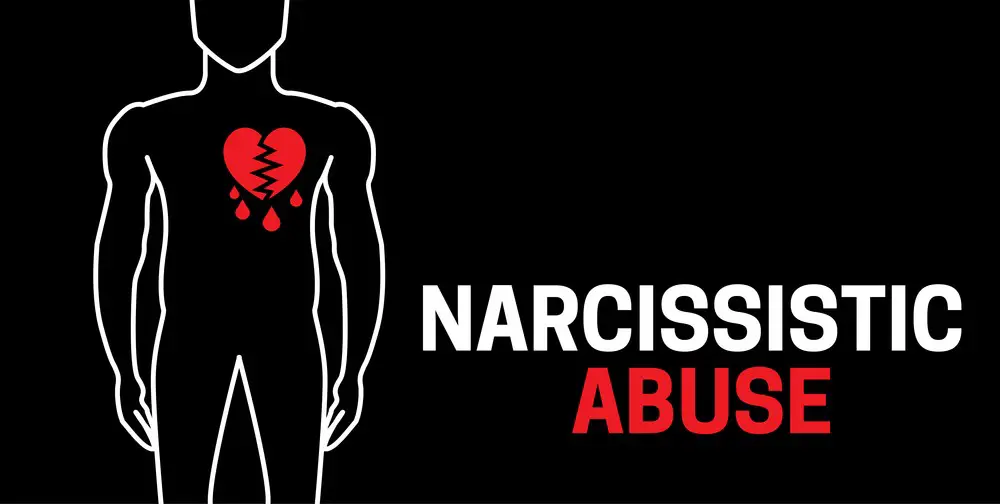As a BetterHelp affiliate, we receive compensation from BetterHelp if you purchase products or services through the links provided
• Learn how to recognize the signs of a narcissistic partner
• Develop strategies for dealing with manipulation during divorce
• Understand the impact this type of relationship has on your mental health
• Set boundaries and prepare for what lies ahead
• Find ways to cope emotionally as you move on after the divorce.
Breaking up with a narcissist is never easy, but it can be done. After divorcing my narcissistic partner seven years ago—we had been married close to 20 years and had five children together—I understand firsthand how devastating and confusing this type of relationship can be. Recognizing the signs of a narcissistic partner before taking steps towards divorce and understanding how the kind of relationship impacts your mental health is essential. I made the mistake of trying to keep an amicable divorce without lawyers; however, now that she has alienated our kids, I have had to fight for custody in court. Unfortunately, she refuses to comply with the court-ordered custody arrangement, and I have had to take legal action against her for contempt of court and parental alienation.
By preparing for what lies ahead and setting boundaries with your ex-partner, you’ll be better equipped to deal with manipulation during the process while still finding ways to cope emotionally. Also, The Virginia Divorce Process is a long, drawn-out process; you must be prepared for that. Understanding how the narcissistic relationship has affected your mental health is crucial. In many cases, people who have been in relationships with narcissists struggle with low self-esteem and confidence after years of emotional abuse. With these tips in mind, divorcing a narcissist doesn’t have to feel like an impossible task; instead, it can become an opportunity for growth as you move on after the divorce—including making decisions about custody arrangements that are best for everyone involved.
With these tips in mind, divorcing a narcissist doesn’t have to feel like an impossible task; instead, it can become an opportunity for growth as you move on after the divorce—including making decisions about custody arrangements that are best for everyone involved.
Table of Contents:
Recognizing a Narcissist

Narcissism is a personality disorder characterized by an excessive sense of self-importance, grandiosity, and a need for admiration. Narcissists may struggle to relate to others and can use crafty tactics for their gain. Recognizing the signs of narcissism is essential to protect yourself from their behavior.
Narcissism is frequently indicated by an attitude of grandiosity, which involves believing one’s superiority or importance compared to others. This can manifest as bragging, exaggerating, or even lying about achievements. Narcissists may also talk down to people or belittle those who disagree. They may take credit for other people’s work and not acknowledge anyone else’s contributions or successes.
A key indicator of narcissism is the incapacity to recognize the sentiments of another person in any circumstance. As a result, a narcissist rarely shows sympathy towards another person and often disregards their feelings entirely when making decisions that affect them directly or indirectly. They are also unlikely to apologize for wrongdoings because they believe themselves above reproach – “it was never my fault anyway.”
Manipulation is a regular feature in the narcissist’s toolbox; they often employ tactics such as guilt-tripping, gaslighting (manipulating someone into questioning their rationality), emotional blackmailing (threatening to withhold affection if demands are not met), and playing the victim role (depicting themselves as aggrieved even when it is usually of their own doing). These techniques are employed to gain dominance over another person and ensure that events transpire by what they alone have planned.
Realizing these characteristics in a potential mate before entering into a relationship could aid you in avoiding anguish later; it is always preferable to be cautious than regretful. If you already deal with a narcissistic partner, setting boundaries around what behavior you accept and won’t accept could be helpful. However, be aware that this might result in further manipulation attempts from your partner, so stay strong. Finally, learning coping strategies like mindfulness meditation or talking through your experiences with friends/family members could help reduce stress levels associated with dealing with such difficult individuals.
Identifying a narcissist is essential to safeguard oneself from manipulative tactics; thus, let us move on to the effect of parting ways with one on mental health. To help spot them, it’s essential to stay alert and watch out for any red flags. Now that we have discussed recognizing a narcissist, let us move on to the impact that divorcing one can have on your mental health.
The Impact on Mental Health

Dissolving a marriage with someone exhibiting narcissistic traits can be an arduous and emotionally taxing experience. Realizing the possible effects on your psychological well-being is critical to ready yourself for what may occur.
Stress is one of the most common effects of divorcing a narcissist. This is because they often make it as hard for their partner to leave them as possible. They may prolong court cases, employ kids as bargaining chips in custody battles, or even intimidate them with potential physical harm if their demands aren’t met. The long-term stress caused by such tactics can harm our mental health.
Anxiety is another frequent side effect when dealing with a narcissistic ex-partner. You might constantly worry about how they will react or what kind of games they are playing behind your back, which adds extra strain onto already fragile emotions during this period. In the worst cases, anxiety can become so intense that it paralyzes one’s life and prevents them from progressing beyond their divorce without assistance from mental health professionals.
Depression also commonly occurs after divorcing a narcissist because we tend to feel like we’ve lost control over our lives once again, just like when we were married, but now even more so since there’s no chance of reconciliation anymore. As a result, we start questioning ourselves – why did I stay in such an unhealthy relationship for so long? Why didn’t I see things sooner? How do I pick up my life again? The feeling that nothing matters anymore often leads us into depression, where we struggle daily to survive and try and heal simultaneously – no easy feat.
The impact of divorcing a narcissist on mental health can be significant, and taking the time to recognize and understand these effects is crucial. In addition, getting ready for a divorce from a narcissist necessitates giving thought to legal, financial, emotional, and psychological elements.
Preparing for Divorce

Splitting up with a person with narcissistic qualities can be daunting and intricate. Therefore, it is imperative to be ready for the potential psychological and lawful issues that may come up during the separation process.
The first step in preparing for divorce from a narcissist is to gather evidence of any abusive behavior or other misconduct. Gather proof of abusive or improper actions, such as emails, texts, pics, or taped conversations. Keep all documents related to finances as well; this will help you protect your assets during negotiations. Ensure these items are stored securely so your partner can’t destroy them before the court hearing.
It’s also wise to seek out professional advice before filing for divorce. A legal professional can advise on the most suitable course of action and what sort of agreement may be feasible depending on their previous efforts and present financial status. A therapist may also be able to offer support if needed while navigating through such an emotionally draining process.
Additionally, ensure you have adequate financial resources available throughout the divorce process in case things get messy or drawn out longer than expected – having access to funds can give you peace of mind that even if things don’t go as planned, at least you won’t end up homeless. Finally, consider setting aside some money each month into a savings account dedicated explicitly towards legal fees associated with getting divorced from a narcissist so that no matter what happens, there’s always something set aside just in case it gets ugly down the line… better safe than sorry.
Attempt to maintain composure while navigating the situation; don’t let feelings dictate your choices. Remember that staying level-headed is vital when dealing with someone who has narcissistic traits, as they often thrive off chaos and drama. Take deep breaths and count backward from 10 whenever necessary until those overwhelming feelings subside enough for clear thinking; this way, nothing will slip under the radar while trying to stay focused on making intelligent decisions regarding your future after splitting up with them permanently.
Preparing for the dissolution of a marriage involving a narcissist necessitates forethought, as potential hindrances may emerge. Setting boundaries will help you focus on your goals during this difficult time and ensure that all parties are treated respectfully.
Hire a Kick-a$$ Divorce Lawyer

The Benefits of Hiring a Lawyer
Having a good lawyer on your side can make all the difference regarding getting through a divorce. A great attorney can protect your rights and interests, fight for what you deserve, and ensure everything is handled fairly. They’ll also have the experience necessary to know how best to approach each situation so that you get the most favorable outcome possible.
How To Find A Good Lawyer?
Finding an experienced divorce lawyer with experience dealing with narcissism isn’t always easy, but it’s worth researching before making any decisions. Start by asking friends or family members if they have any recommendations or looking online for reviews from past clients. You should also contact local bar associations, as they may be able to provide referrals based on their knowledge of different lawyers’ specialties and backgrounds. Once you’ve narrowed down your list of potential attorneys, set up consultations with each one so that you can ask questions about their fees, experience level, etc., before deciding which one is right for you.
What Should I Expect From My Attorney?
Your attorney should listen carefully to what you want from the divorce process and work hard towards achieving those goals while providing honest advice. Ensure they have relevant experience. They should be prepared with relevant case law information and strategies for resolving issues outside of court if needed (such as mediation). Most importantly, though, they should treat both parties involved with respect throughout proceedings – no matter how difficult things might get.
Setting Boundaries
Setting boundaries with a narcissist during divorce is essential for protecting your mental health and well-being. The most effective way to establish limits is to be decisive, reliable, and explicit regarding what you anticipate from them concerning their conduct. Setting firm and consistent expectations for their behavior when interacting with you is vital to establishing boundaries during divorce and safeguarding your mental health.
It’s important to remember that setting boundaries do not mean being aggressive or confrontational; instead, it means calmly communicating your expectations while respecting theirs. For example, if a narcissist attempts to use manipulative tactics like guilt-tripping or gaslighting during the divorce proceedings, tell them firmly but politely that these behaviors are unacceptable. You can say, “I don’t appreciate being manipulated; please stop doing this immediately.”
When establishing boundaries with a narcissist during the divorce process, it’s also essential to remain mindful of their feelings and avoid being too harsh or critical. Though narcissist needs to recognize your requests and admit blame for their behavior, there should be no need for animosity or verbal abuse – regardless of prior wrongdoings. Instead of lashing out at them verbally or emotionally punishing them for their mistakes, focus on expressing yourself clearly without attacking their character or belittling them.
Finally, always make sure that any boundary you set is reasonable and enforceable – meaning both parties must agree upon it before implementing it into practice (e.g., settling on an appropriate amount of contact). This will help ensure that everyone involved understands exactly what is expected from each other moving forward so there won’t be any confusion about who needs to do what for things between both parties to remain civil throughout the entire divorce process.
Setting boundaries is essential in divorcing a narcissist, as it can help protect your rights and sanity. In addition, dealing with manipulation is another crucial element of navigating the divorce process, as narcissists often use manipulative tactics to get what they want.
Dealing with Manipulation
Narcissists often use their manipulative skills to gain an advantage during a divorce. For example, they may make you feel guilty for leaving them or threaten to take away your children if you don’t give in to their demands. Remaining resolute in the face of such tactics is essential; do not let yourself be manipulated.
One common tactic narcissists use is gaslighting – making someone doubt their memory or perception of events. This can involve lying about things that have happened, denying conversations, or manipulating evidence, so it looks like something else entirely occurred. To counter the effects of gaslighting, it is crucial to keep a thorough record of all interactions with your ex-spouse and other parties involved in the divorce proceedings, documenting as much as possible on paper. Wherever feasible, record as much data as possible in writing so that any potential conflict is precluded later.
In response, remain stoic and keep your emotions in check during court hearings and mediation sessions; do not allow yourself to be pulled into disputes where your former spouse attempts to absolve himself of responsibility for his role in the separation by portraying himself as an innocent bystander who his mate wronged.
Finally, some narcissists may also resort to more extreme measures such as threatening physical violence against themselves or others if they don’t get what they want out of a settlement agreement – especially if custody over children is at stake. These threats must be taken seriously; contact law enforcement immediately should anything like this occur, then follow up with legal counsel who can help protect your and your child’s safety throughout future proceedings.
Overall, remember that divorcing a narcissistic partner isn’t easy; however, understanding how manipulators operate can help equip you with the strategies needed to navigate through these trying times without getting sucked into their web of deceitful gamesmanship.
Recognizing the indications of manipulation and taking action to guard yourself is crucial. Having a plan can help you stay strong when faced with manipulative tactics. Coping strategies are essential for managing your emotions while divorcing a narcissist, as they will try to use them against you during this difficult time.
Coping Strategies

Coping strategies can be a lifeline during the divorce process. Finding activities that help you manage your emotions and relieve stress is essential. Mindfulness practices, such as meditation or yoga, can effectively stay present and reduce stress during the divorce process. In addition, therapy and connecting with others through support groups can benefit those experiencing tough times.
Other helpful coping techniques include journaling or writing down your thoughts and feelings. Penning your sentiments and perceptions can be a great way to outwardly articulate yourself without fearing judgment. To bolster your physical well-being, strive to consume nourishing foods, stay active regularly and ensure you get adequate rest every night.
It might also be helpful to talk with trusted friends or family members who understand what you’re going through and offer emotional support when needed. If there isn’t anyone close by who understands your situation, consider reaching out online, where plenty of resources are available specifically designed for people dealing with divorce-related issues.
Rather than agonizing over the past, focus on the promise of better days. Instead of dwelling on past mistakes, look ahead towards brighter days ahead. Even if it feels like everything is falling apart now, know that this too shall pass eventually, and better times will come again soon enough.
It is imperative to recall that there are tactics that can be employed to assist in managing the psychological stress of parting ways with a narcissist. With these in mind, it’s time to look at how best to move on after divorce and rebuild your life.
Moving On After Divorce

Terminating a relationship with a narcissist can be an arduous and emotionally taxing process. However, it’s important to remember that you are not alone; many people have gone through this and come out stronger on the other side. Caring for yourself, rediscovering who you are, establishing limits with your former partner, and forming good connections with others are all critical elements in progressing after divorce from someone exhibiting narcissistic traits.
Self-Care:
Taking care of yourself should be a top priority after divorcing a narcissist. Feelings of fury or sorrow can quickly take over when interacting with a person who is unable to sympathize with the emotions of others. Take time each day to nurture yourself, such as going for a walk or reading a book, and ensure that you get adequate rest to help your body heal from the emotional turmoil of divorcing a narcissist.
Rebuilding Identity:
After leaving an unhealthy relationship, it can be difficult for some individuals to find their sense of identity again since they may have relied heavily upon their partner for validation or support during their marriage. Start exploring activities that bring meaning into your life, such as joining clubs or volunteering at local organizations – these activities will help remind you of who you are outside of being someone’s spouse.
Setting Boundaries:
As detailed above, setting boundaries between yourself and your ex is vital when trying to move on after divorcing them. This means no contact unless essential (for example, if children are involved). When setting boundaries, it is crucial not only to communicate what behaviors are unacceptable but also to establish consequences for violating those rules – this way, there won’t be any confusion about how much control they still have over your life post-divorce.
Creating Healthy Relationships:
Moving from an abusive relationship requires creating healthy relationships with others to heal from past trauma and build trust in future partners, friends, and family members again. This could mean finding supportive friends who understand what it’s like going through a divorce or seeking professional counseling services which can provide helpful guidance along the journey towards recovery.
Progressing after splitting up can be challenging, yet locating a feeling of harmony and healing is conceivable. In the future, dealing with the custody of your children could be a critical factor in allowing all those involved to progress with their lives.
Custody
When facing a parent with narcissistic traits in the context of child custody, one must be mindful of potential attempts at control and manipulation. It’s essential to remember that you have rights and should not let them manipulate or guilt-trip you into making decisions against your will.
Narcissists may seek to control circumstances by attempting to elicit compassion from others to attain their aims. Narcissists may employ fabricated allegations, amplify possibilities, or manufacture information to present themselves in a more favorable light. Don’t fall for these tactics – stay focused on the facts and remain firm when negotiating custody arrangements.
Narcissists may attempt to cultivate a climate of hatred towards their ex to exert power over them, such as through verbal aggression, the possibility of litigation, or undermining their former partner’s parenting aptitude before family and acquaintances. This could include verbal abuse, threats of legal action, or attempts at discrediting their former partner’s parenting abilities in front of family members or friends. It is critical to not partake in such behavior but instead concentrate on finding solutions that benefit all those involved – including kids who the results of negotiations may influence.
It’s also essential not to give in to pressure when discussing custody arrangements; take time out if necessary so both parties can cool off before continuing negotiations if needed. Narcissists may rush through discussions without considering all factors involved – such as how much time each parent has available for childcare duties – so don’t feel pressured into agreeing with something just because they’re pushing hard.
How Therapy Can Help
Divorcing a narcissist can be an emotionally draining and challenging process, but with the help of therapy, it doesn’t have to be unmanageable. A therapist can guide in understanding the dynamics of a narcissistic relationship, as well as help to set boundaries and develop strategies for dealing with manipulation during the divorce. They can also work on improving your mental health by providing emotional support. With the right kind of help, divorcing a narcissist doesn’t have to seem impossible; instead, it can become an opportunity for growth as you move on after the divorce—including making decisions about custody arrangements that are best for everyone involved.
Therapy is essential to the healing process when divorcing a narcissist and can provide invaluable support during this difficult time. Different therapies are tailored to help you manage while going through a divorce, such as cognitive-behavioral therapy (CBT) or family therapy. Let’s take a look at how each type of therapy can help.
1. Cognitive Behavioral Therapy (CBT):
Cognitive behavioral therapy is a form of psychotherapy that helps people identify and change negative thinking patterns, beliefs, and behaviors. It can help divorcees recognize the distorted thoughts keeping them stuck in unhealthy situations or relationships with their former partner. CBT also encourages clients to challenge those distortions by reframing them into more helpful perspectives. For example, instead of believing “I’m not good enough for anyone else” after a breakup with a narcissist, one could try saying, “I am worthy of love and respect from someone who treats me well.”
2. Acceptance & Commitment Therapy (ACT):
Acceptance & Commitment Therapy (ACT) is another type of cognitive behavior therapy designed to help individuals accept difficult emotions without being overwhelmed by them or trying to push them away. This type of therapy encourages individuals to commit to acting to live according to their values rather than focusing on the things they cannot control, such as the past or other people’s opinions about them. ACT teaches mindfulness skills which allow clients to become aware of their thoughts and feelings without judgment so they can make choices that are aligned with what matters most in life—such as spending time with loved ones, engaging in meaningful work, etc.—rather than clinging onto painful memories from the past relationship
3. Dialectical Behavior Therapy (DBT):
Dialectical Behavior Therapy is an evidence-based treatment developed specifically for treating emotionally dysregulated individuals who struggle to manage intense emotional states like anger, fearfulness, or sadness resulting from trauma experiences like domestic violence or abuse within marriage divorce proceedings involving narcissistic partners. DBT focuses on teaching new coping skills while validating existing ones through building self-awareness around emotions; this allows divorcing spouses to manage challenging situations better when interacting with their ex-partner during court hearings etc., preventing further escalation into toxic exchanges, which often happen due to disagreements over child custody arrangements, etc
4 Support Groups:
Support groups provide divorcing couples a haven where they can swap stories about similar experiences connected to the separation/divorce process caused by personality disorders like NPD; it also serves as an avenue for airing out resentments related to court proceedings, custody battles, etc., thus helping members feel less isolated during this trying transition period. In addition, these groups are typically overseen by mental health experts who offer counsel regarding legal advice, parenting tips, financial aid programs, etc., allowing participants access to resources otherwise unattainable if going through these processes solo.
FAQs
What will a narcissist do when you divorce them?
When a narcissist is divorced, they may experience a range of emotions. They may feel anger, sadness, and even humiliation. A narcissist may attempt to seek retribution or wield influence to regain power over the situation. Narcissists can also become depressed and act out in destructive ways, such as blaming their former partner for all that has gone wrong or attempting to discredit them publicly. It is essential to be wary when engaging with a narcissist, preferably from afar; they often have difficulty coming to terms with not getting their way.
How do you outsmart a narcissist in a divorce?
Divorcing a narcissist can be challenging, so staying focused on your goals and remaining composed is vital. Keeping your sights on your objectives and staying even-headed during the divorce proceedings is critical. To outsmart a narcissist in divorce, remaining composed and avoiding reacting emotionally is essential. Be prepared for manipulation tactics such as gaslighting, guilt-tripping, or false accusations; document any interactions with the narcissist carefully so you have evidence if needed later on. Additionally, consider seeking legal counsel from an experienced family law attorney who understands how narcissistic personalities operate in court proceedings. With knowledge of the law and strategies like assertive communication techniques, you will be better equipped to face any challenges during the divorce process.
Do narcissists care if you divorce them?
Determining precisely how a narcissist might react to divorce is challenging, as their response may depend on personal factors. However, narcissists may view divorce as a chance to explore other pursuits or relationships and are unlikely to be deeply affected. Narcissists often have difficulty forming meaningful connections with others and may use simple means, such as material possessions or status symbols, to gain attention from those around them. If these things are taken away through a divorce, they might feel slighted but move on without too much distress.
What is the best way to divorce a narcissist?
Splitting from a narcissistic individual can be an exhausting and challenging experience. Establish limits and remain firm on them while parting ways with a narcissist, as they will not have your welfare in mind. Seek legal advice from an experienced attorney specializing in family law who has experience with divorces involving narcissistic personalities. Third, document all communication between you and your ex-spouse for future reference. Lastly, try your best to remain level-headed during this time, as emotions may run high due to the nature of divorce proceedings with a narcissistic partner.
Conclusion
Divorcing a narcissist can be daunting, but it is achievable with proper forethought and knowing how to stand firm against manipulation. It’s important to remember that although divorcing a narcissist may seem overwhelming at times, you are not alone in this journey. If you feel overwhelmed, do not hesitate to seek assistance from the many available resources.
If you are considering divorcing a narcissist, Rest Equation can provide the advice and support needed to make an informed decision. Visit our website now for more information on how we can help you through this challenging process.
Further Reading
How Do CBT and Psychotherapy Compare?
The Threat of the Online World To Children: Kids Need Both Parents in Their Lives
Understanding the Different Types of Narcissists
Discover the Benefits of Being an Opposite of a Narcissist
Do Narcissists Know They’re Narcissists? Here’s What We Know
Uncovering the Secrets of Famous Narcissists
- 7 Ideas to Help You Relax and Unwind on a Family Vacation - April 27, 2025
- How Having Cybersecurity Protection Helps You Relax - April 25, 2025
- 8 Reasons Why Spending Time Outside Calms You Down - April 25, 2025
This site contains affiliate links to products. We will receive a commission for purchases made through these links.





